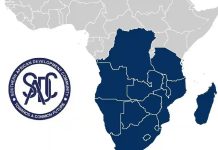The SADC region recorded the lowest rainfall in nearly four decades during the 2018-2019 summer cropping season, spawning historically low agriculture yields in the region, particularly Zimbabwe.
Farmers dependent on rain-fed agriculture had their crop nearly wiped out by a debilitating mid-season dry spell.
According to the SADC Food Security Early Warning System Agromet: “Many parts of southern Angola, northern and southern Botswana, northern Namibia, north-western South Africa, southern and western Zambia and north-western Zimbabwe received their lowest seasonal (October-March) rainfall totals since 1981.”
The development also threw into disarray Government’s plans to revive the agriculture sector which, along with mining, is at the backbone of the local economy.
Production
Both food crops and cash crops were affected almost in equal measure, but tobacco yields grew, albeit marginally.
Grain production was adversely affected during the last cropping season with the country’s farmers managing just under 800 000 tonnes of grain, against a national grain requirement of 1,8 million tonnes.
The previous season, farmers produced 1,7 million tonnes of maize while in 2017, around two million tonnes of the staple grain was produced.
Owing to the poor yield, Government is now importing grain to cover for the massive shortfall, a development that is unkind to Treasury which is already grappling with access to foreign currency.
Government has, however, assured the nation that no one will starve.
Production of small grains also dipped in spite of encouragement by authorities for farmers to ramp up their production as they are more tolerant to severe weather conditions.
According to the Tobacco Industry and Marketing Board (TIMB), tobacco output surpassed the previous season’s record-breaking output of 252 million kg, despite the crop being grown under drought conditions.
Tobacco farmers managed another record-breaking feat by delivering 259,5 million kilogrammes of the golden leaf.
Overall earnings from the crop, however, slumped to US$530 million from US$737 million a year ago owing to subdued prices.
The average price at tobacco auction floors this year was lower by about 31 percent compared to those of the previous year, according to TIMB.
Livestock
The national heard also suffered a massive hit in 2019 due to a combination of diseases and starvation.
Tick-borne diseases accounted for thousands of cattle deaths countrywide as farmers and authorities struggled to contain the outbreak.
At the beginning of this year, Theileriosis, or January disease — a tick-borne infection — had claimed 50 000 cattle.
The outbreak curtailed Government’s drive to replenish the national cattle herd and efforts to boost both the dairy and beef industry.
Foreign currency shortages hindered authorities’ capacity to import dipping chemicals, thereby worsening the scourge.






